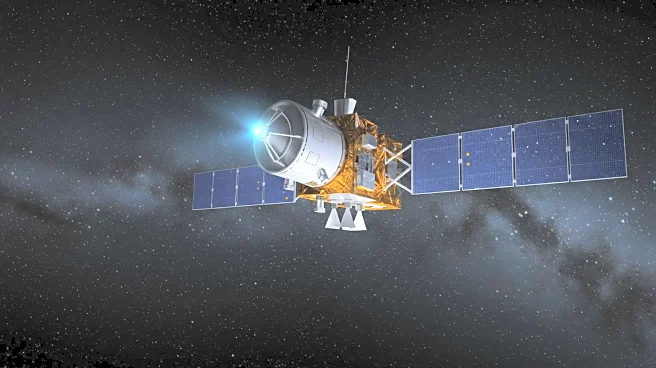What is the story about?
What's Happening?
The Trump administration has decided to narrow the capabilities and reduce the number of next-generation weather and climate satellites planned by the National Oceanic and Atmospheric Administration (NOAA). This decision involves removing instruments designed to measure air quality and ocean conditions from the satellite project, known as Geostationary Extended Observations (GeoXO). Critics argue that this move is a short-sighted attempt to save money at the expense of understanding environmental phenomena. The administration's budget document indicates a focus on weather forecasting, excluding climate change observations. The reduction in satellite instruments could impact the ability to enforce air pollution regulations and gather comprehensive environmental data.
Why It's Important?
The decision to strip pollution monitoring capabilities from NOAA's satellite program could have significant implications for environmental policy and public health. The removed instruments would have provided valuable data for air quality monitoring, wildfire smoke analysis, and ocean health assessments. Without these tools, the U.S. risks falling behind in environmental monitoring capabilities, potentially affecting its leadership in Earth observations. The reduced satellite capabilities may hinder efforts to address climate change and pollution, impacting regulatory enforcement and scientific research.
What's Next?
NOAA plans to launch the first GeoXO satellite in 2032, with service lasting through 2055. The reduction in satellite numbers raises concerns about data redundancy and the risk of critical data outages. Congress is currently considering the Trump administration's fiscal year 2026 budget request, which includes proposals to close NOAA's research facilities and greenhouse gas monitoring network. The scientific community and environmental advocates may push back against these changes, emphasizing the importance of comprehensive environmental monitoring.















